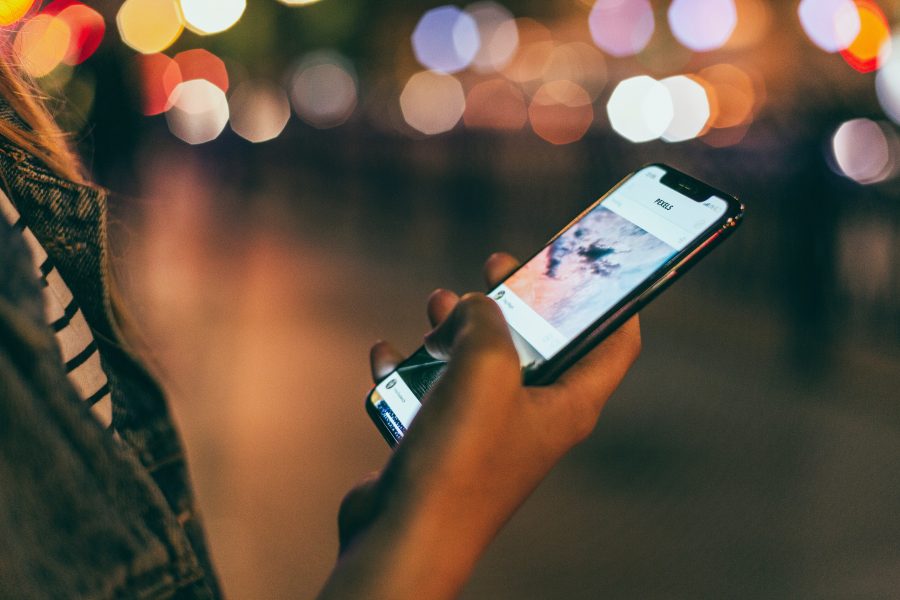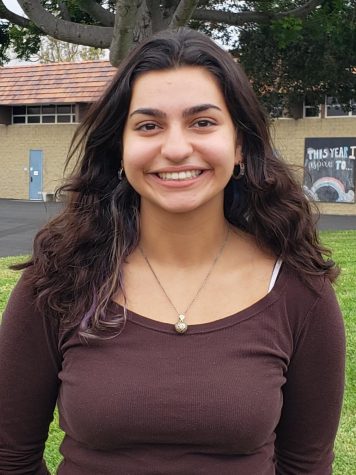Prowledge, Where Protests Go Virtual
December 28, 2020
The Prowledge app aims to promote change through informing users on social issues (Daria Shevtsova).
The death of George Floyd in May galvanized a wave of social unrest. Protests took place in many cities across the country and around the world, starting in Floyd’s home city of Minneapolis and spreading as far as Europe and South America. Although he was not the first victim of police brutality, his death highlighted the flaws of the current criminal justice system. UHS juniors Nathaneo Johnson and Raiyan Rizwan, inspired by these events, decided to use their time in quarantine to create an app called Prowledge. The name “Prowledge” comes from the two main purposes of the app, protest and knowledge.
“Our purpose [for creating Prowledge] from the start was always to promote change through protests, but physical protests are harder to organize now due to COVID-19,” Johnson said. “Thus, we wanted to begin to digitize the positive aspects of physical protests for a new era, while still facilitating the ability to protest.”
Prowledge will provide users with a platform where they can access information about non-governmental organizations (NGOs) and other local non-profits, and the app keeps users updated on current events regarding protests to encourage people to get more involved with social issues in their community. There will also be a “knowledge” page that Johnson and Rizwan hope can serve as a page for users to publish articles they have written themselves that others can read and comment on.
“[The] articles are intended to express perspectives, feelings, anecdotes, et cetera to promote cultural awareness and to help cultivate more informed Americans,” Johnson said.
The creators started designing the app shortly after schools closed due to the pandemic in March. To accommodate for lockdown restrictions, Johnson and Rizwan spent three to five hours on Zoom every day until the end of summer to design and discuss Prowledge. Having had no previous experience with coding and little access to the softwares and technologies available, they faced many technological challenges while creating the app.
“There were a lot of loopholes and coding tricks that we had to exploit and create in order to get everything off the ground,” Rizwan said. “A lot of the app is really an extension of our frankenstein knowledge of coding and a series of novel methods and frameworks.”
After months of experimenting, the app is in its last stages of creation, and Johnson and Rizwan already have a number of measures they are taking to make Prowledge more successful. They have started a club at UHS to garner more members to discuss societal issues both over Zoom and through the app. Another way they hope to widen their influence is by entering their app into the Diamond Challenge, an entrepreneurship competition offering $100,000 in prizes and resources to student projects. They have also reached out to organizations and companies for possible partnerships.
“We’re also hoping to bring the app to the App Store this summer, with a host of new features,” Rizwan said. “[There will be] a map for ongoing protests/events, a page with webinars and virtual events, user verification and more.”
While they are still deciding some of the details before the app’s release, one thing they are sure about is the long-term vision they have for the app.
“We envision Prowledge becoming an international platform connecting millions of people around the world with various NGOs and [event organizers] in order to bring about feasible change in our society,” Johnson said.
The creators want to gather audiences from different backgrounds and create a community driven by change. Large social issues are complex and can often make young people feel as if they cannot do much to help, but there are many ways young people can get a better grasp of these issues and contribute to solving them.
“We saw thousands of people out in the streets advocating for change […] but we also saw the violence,” Johnson said. “Our solution was a platform that could give millions of Americans a place to assemble, a place to share perspectives and anecdotes, a place to learn, and a place to keep fighting societal adversity through digital means in the face of a global pandemic.”





